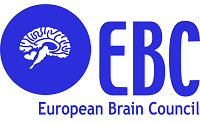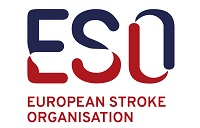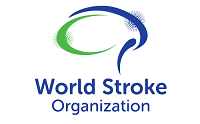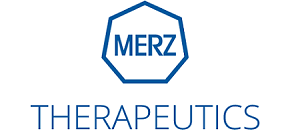Life after stroke – the present challenges
Research and medical attention into the areas of primary prevention and intervention at the point of stroke occurring is an understandable priority. Yet survivors of stroke on discharge from a largely medicalised pathway enter a world where support is usually unclearly defined, often fragmented or non-existent, and where cultural expectations can dramatically impact quality of life and any success of ongoing recovery.
Survivors of stroke and their loved ones may face decades of existence in which they are largely reliant on self-management. The survivor in their new post stroke life faces problems caused by stroke related disabilities, often complicated by co-morbidities, and additional issues related to their internal and external environment, self-care and self-esteem, role activity, finance, transport, housing, social integration and so on.
These issues are compounded by the current situation whereby little research is directed to these areas and the voice of the people surviving the stroke experience is very often not articulated.
Life after stroke webinar series 2021: Shining a spotlight on life after stroke
Register now for the webinar series https://bit.ly/3cXlJFR
There are nine million people living with stroke in Europe.
The pandemic has worsened the stroke burden and the number of stroke survivors is predicted to increase due to an ageing population. Life after stroke care and support is even more important than ever and must be a priority for health and social care across Europe.
The life after stroke series of free interactive events is an opportunity to build the life after stroke healthcare, research and patient community, stimulate debate and ultimately improve life after stroke care and build interest for our 1st European Life After Stroke Forum on 11 March 2022.
Life after stroke: priorities, challenges and ways forward?
Life after stroke: priorities, challenges and ways forward, Friday 12 March 10.00-11.30 CET
This live session will highlight key issues affecting stroke survivors in the longer term and share examples of good practice and what ‘good’ long term support looks like in a post-pandemic context.
We will hear updates from Bo Norrving (Sweden), Juliet Bouverie (UK), Liam Healy (Ireland) and Caterina Pistarini (Italy) on people’s experiences of the impact of stroke before and during the pandemic, and how healthcare and support services have adapted to meet the challenges of post-pandemic stroke care.
The programme
Opening and welcome: Avril Drummond (conference chair)
Introduction to the session: Katharina Sunnerhagen and Jürg Schwyter (stroke survivor) co-chairs
Stroke care to date:
- Bo Norrving – Challenges in supporting Life after stroke: experiences from Sweden
- Juliet Bouverie – How COVID-19 has impacted people affected by stroke in the UK and what that means for stroke policy and support services
- Alexia Kountouri – My life after stroke (video)
- Caterina Pistarini – Life after stroke during COVID-19: showcasing new ways of working in Italy
- Liam Healy – Life after stroke: experiences in providing care in Ireland during COVID-19
Questions and answer session
Close: Jürg Schwyter
Registration is free: https://bit.ly/3cXlJFR
Hashtag: #LifeAfterStroke
More about our chairs and speakers
Avril Drummond is Professor of Healthcare Research, and an occupational therapist, at the University of Nottingham, UK. Her main area of interest is stroke rehabilitation and she has undertaken large trials, studies and service evaluations.
Avril is a member of the Royal College of Physicians’ Intercollegiate Working party for stroke, which produces the UK Stroke Clinical Guidelines. She is a former Chair of the UK Stroke Forum, she chaired the ‘Life after stroke’ domain for the Action Plan for Stroke in Europe and is a trustee of the UK Stroke Association.
Bo Norrving is Professor in Neurology at Lund University, Sweden. He has published over 500 papers on stroke and several books. He was corresponding author of the Swedish Aspirin Low-Dose Trial (SALT) published in The Lancet 1991 as the first trial to demonstrate the benefit of low dose aspirin therapy for the prevention of stroke.
Bo is a founder of the Swedish Stroke Register (Riksstroke), the world’s first national stroke registry. Since 2014 he chairs the Riksstroke, and is actively engaged in many international register collaborations. He is the first Editor-in-Chief for the European Stroke Journal.
Caterina Pistarini is a Director of Scientific Rehabilitation Institute Salvatore Maugeri Genoa-Italy and Director of Neurorehabilitation Department of Clinical and Research Institutes of Salvatore Maugeri Company, Professor of Physical and Rehab Discipline University of Genoa and general secretary of World Federation of Neurorehabilitation.
Caterina has technical skills and competences about definition and organisational protocols of care for patients with neurological disability. She also is involved as member of Italian Health Committees for the definition of National guidelines for the rehabilitation care of patients with neurological disabilities. She is Chair of National and International projects on development of treatment’s protocols in neurorehabilitation field.
Jürg Schwyter was Head of the English Department and Professor of English Linguistics in the University of Lausanne when he suffered a severe brain stroke 12 years ago. Numerous therapies later, he successfully re-integrated in professional life and taught at 50% at the University before retiring in the summer of 2020 to the post of Research Fellow.
His research interests focus on language and the brain, aphasia, and the interrelationship of multilingualism and strokes. Jürg continues to pursue socio- and historical linguistics, language standardisation, and broadcast English and the BBC. As a linguist, stroke survivor and aphasiac, he wants to reach out about the impact of a stroke on language, communication and multilingualism.
Juliet Bouverie OBE is the Chief Executive of the Stroke Association, the UK’s leading stroke charity promoting life after stroke. The organisation’s activities extend from funding stroke research, to providing services to stroke survivors and their families, influencing and campaigning for change, and educating and working to prevent strokes. There are 1.2 million stroke survivors in the UK, yet stroke still remains the fourth single largest cause of death in the UK and second in the world.
Juliet co-chairs the Stroke Delivery Programme Board with NHS England and is a member of the NHS Assembly.
Dr Katharina Stibrant Sunnerhagen MD, PhD is Professor and Chair in Rehabilitation Medicine, Head at the Department of Clinical Neuroscience at the University of Gothenburg and also serves as a senior consultant at Sahlgrenska University Hospital. She has been a professor at the University of Oslo, Norway as well as Riga Stradin’s University, Latvia.
Since the early 1990s, Katharina has been active in stroke care and research. She has authored more than 275 papers in international peer reviewed journals with and H-index of 59. She has served as Swedish representative in the ESPRM and UESM. She is an ESPRM Senior fellow as well as a EARM member.
Dr Liam Healy is a Consultant Stroke Physician and Geriatrician and Clinical Lead for Stroke in Cork University Hospital, Ireland. Cork University Hospital is the busiest inpatient stroke service in the country and one of two thrombectomy centres nationally.
Liam trained in Ireland as a Geriatrician and spent a number of years training in Edinburgh in Acute Medicine and Stroke before returning to Cork in 2015. He is a member of the Irish Clinical Advisory Group on Stroke and a Clinical Lecturer in University College Cork.
Participation and registration is free.
Register now for the webinar series https://bit.ly/3cXlJFR
#LifeAfterStroke
We hope to see you then!
SAFE team















